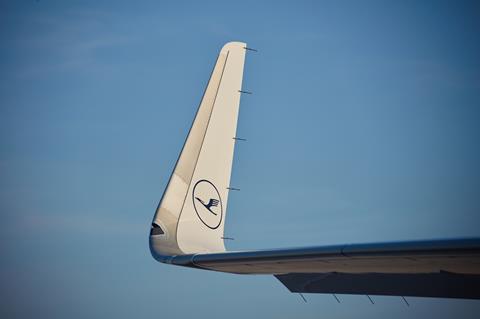Lufthansa Group expects to operate around 40% of pre-crisis capacity across this year after today disclosing an adjusted EBIT loss of €1.1 billion ($1.3 billion) as the pandemic continued to hit traffic in the first quarter.
The 40% capacity projection is at the low end of Lufthansa’s previous 40-50% outlook for the year and reflects the slower than expected lifting of travel restrictions.
Group revenues for the three months ended 31 March of €2.6 billion were 60% down on the same quarter last year – a period only partially affected by the pandemic. Lufthansa’s adjusted EBIT loss though does mark a €100 million improvement on the €1.2 billion it lost in the first quarter of 2020.

Lufthansa Group chief executive Carsten Spohr says: ”Thanks to consistent cost savings, we were nevertheless able to achieve better results than in the previous year. The changes already implemented in the group are showing an effect.
”We will not ease in our efforts to further modernise the Lufthansa Group, to make it leaner, more efficient, and to maintain our position among the world’s leading airlines.”
The group’s operating cash burn during the first quarter averaged €235 million, lower than the €300 million it originally expected. The company attributes this improved performance to better than expected earnings in its logistics and MRO segments.
Monthly average operating cash drain is expected to fall slightly to €200 million in the second quarter.
Lufthansa Group flew 21% capacity of pre-crisis levels during the first quarter. It carried 3 million passengers during that period, just 10% of 2019 levels, and seat load factor fell by 33 percentage points to 45%.
While the airline sees only a slow pick-up in travel demand during the second quarter because of travel restrictions remaining in place, it is optimistic of a recovery in the second half.
”The longer the crisis lasts, the greater people’s desire to travel again becomes,” says Spohr. ”We know that bookings shoot up wherever restrictions are loosened and travel becomes possible again.
”Given the foreseeable major advances in vaccination rates, we expect demand to rise sharply from the summer onwards. Encouraging signals, such as the announcement by the EU Commission that it will once again allow vaccinated passengers from the USA to travel to Europe, confirm our confidence.”
The group’s carriers are boosting capacity on leisure routes, where it sees demand returning first, and Lufthansa says it will be able to offer up to 70% of pre-crisis capacity in the short-term when demand returns.


























